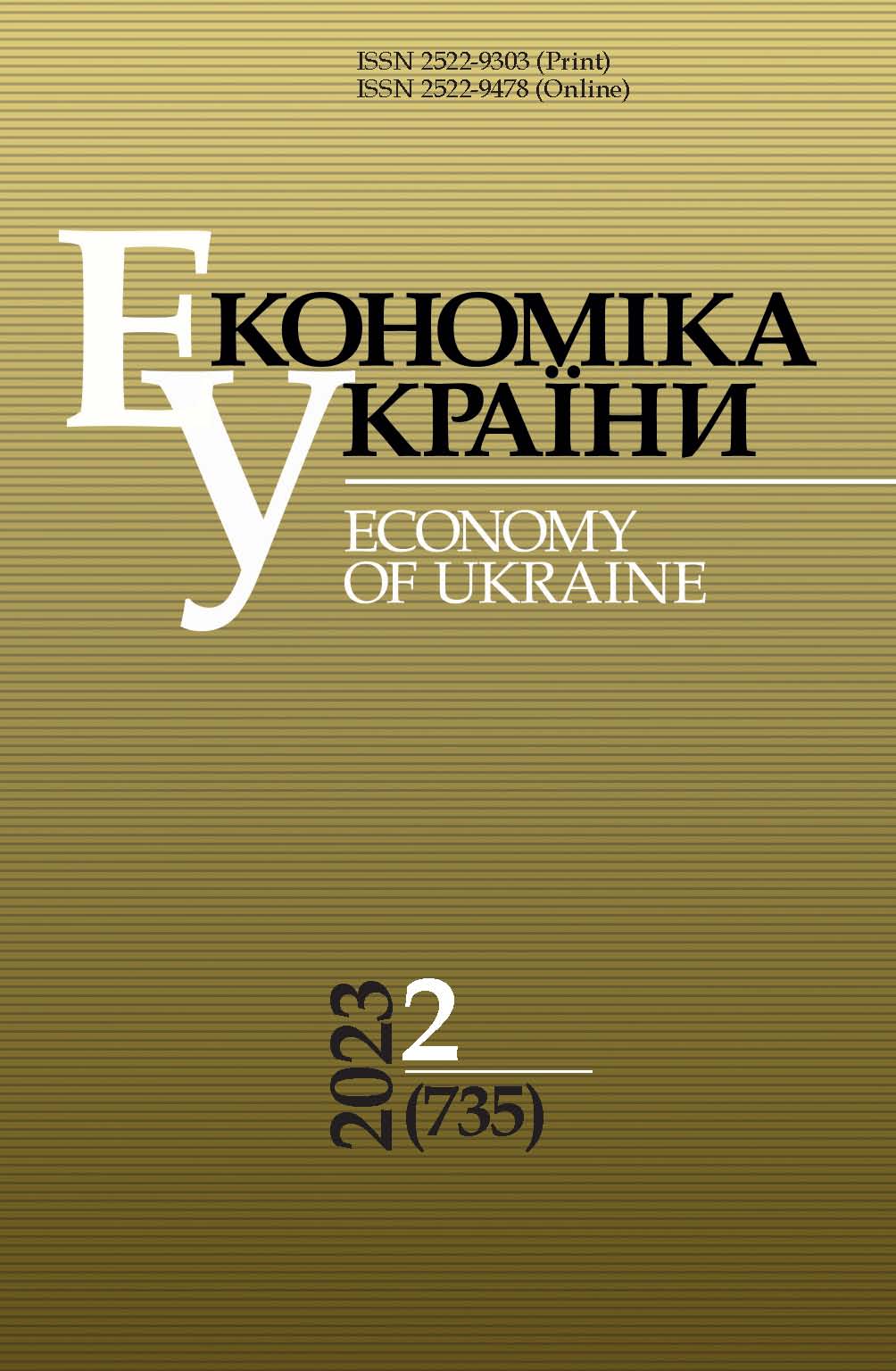СТРАТЕГІЧНІ ПРИНЦИПИ ПОВОЄННОГО ВІДНОВЛЕННЯ УКРАЇНИ
DOI:
https://doi.org/10.15407/economyukr.2023.02.003Ключові слова:
управління ресурсами; «план Маршалла»; ціннісній підхід; освіта; Південна Корея; євроінтеграція; підготовка кадрів; реформування; відновленняАнотація
Визначено й проаналізовано основні стратегічні принципи повоєнної відбудови України: управління ресурсами відновлення, ціннісний підхід до процесів реформування і відновлення, освіта з наголосом на підготовці фахівців з високими етичними цінностями. Післявоєнне відновлення лише розпочинає тривалий рух України на шляху високотехнологічного розвитку.
Обґрунтовано необхідність створення конкретної, узгодженої з країнами-донорами програми відновлення, яка дозволить Україні не лише перебудуватися на європейських засадах, а й отримати членство в євроатлантичних структурах. Визначено контури такої програми і шляхи її реалізації. На нинішньому етапі потрібна нова архітектура міжнародного розвитку, якою може стати коаліція на основі взаємодії багатьох сторін, що паралельно з відновленням України стимулюватиме її інтеграцію до ЄС. Детально проаналізовано процес налагодження координації діяльності донорів з реципієнтом як один з найважливіших і найскладніших елементів реалізації «плану Маршалла» в повоєнній відбудові України.
Розглянуто основні варіанти координаційних можливостей і запропоновано конкретний варіант координаційного механізму для сучасної України. Для подолання наявної системної кризи доцільно консолідовано використовувати тактичні й стратегічні реформаторські заходи. Невідкладними тактичними заходами є реформування системи управління і боротьба з корупцією, а стратегічними – відновлення верховенства права і етичних норм у економіці, тобто християнських цінностей. Обґрунтовано, що сьогодні людський капітал відіграє дедалі важливішу роль у глобальному середовищі, а освіта і наука стали ключовими елементами у визначенні якісних аспектів робочої сили. Показано, що успіхи «плану Маршалла» і реконструкції Південної Кореї на основі розвитку високих технологій завдячують не лише високоякісній структурі управління проектами, а й вихованню і залученню талановитих людей для їх реалізації.
Посилання
Kistersky L.L., Burlyai A.B., Lypova T.V. Marshall Plan for Ukraine. Strategic Panorama, 2000, No. 3-4, pp. 90-97 [in Ukrainian].
Kolodko G.W. Economy of new pragmatism: definition, purpose, methods. Economy of Ukraine, 2020, No. 2, pp. 3-23 [in Ukrainian].
A Social and Solidarity Economy: The Ukrainian Choice. Filipenko A.S. (Ed.). Cambridge, Cambridge Scholars Publishing, 2017. URL: https://www.cambridgescholars.com/product/978-1-4438-9522-4
Heyets V., Blyzniuk V., Nykyforuk O. Topical aspects of social quality policy in the post-conflict economy of Ukraine. Economy of Ukraine, 2022, No. 6, pp. 3-22 [in Ukrainian].
Smith A. The Theory of Moral Sentiments. São Paulo, 2006.
Kistersky L., Marmazov V., Piliaiev I. Prospects for the East-West Civilizational convergence: Confucian Tradition Democracy in the Republic of Korea. Prague, 2021. URL: https://r.donnu.edu.ua/handle/123456789/2339
##submission.downloads##
Опубліковано
Як цитувати
Номер
Розділ
Ліцензія
Авторське право (c) 2023 Видавничий дім "Академперіодика" НАН України

Ця робота ліцензується відповідно до Creative Commons Attribution-NonCommercial-NoDerivatives 4.0 International License.



